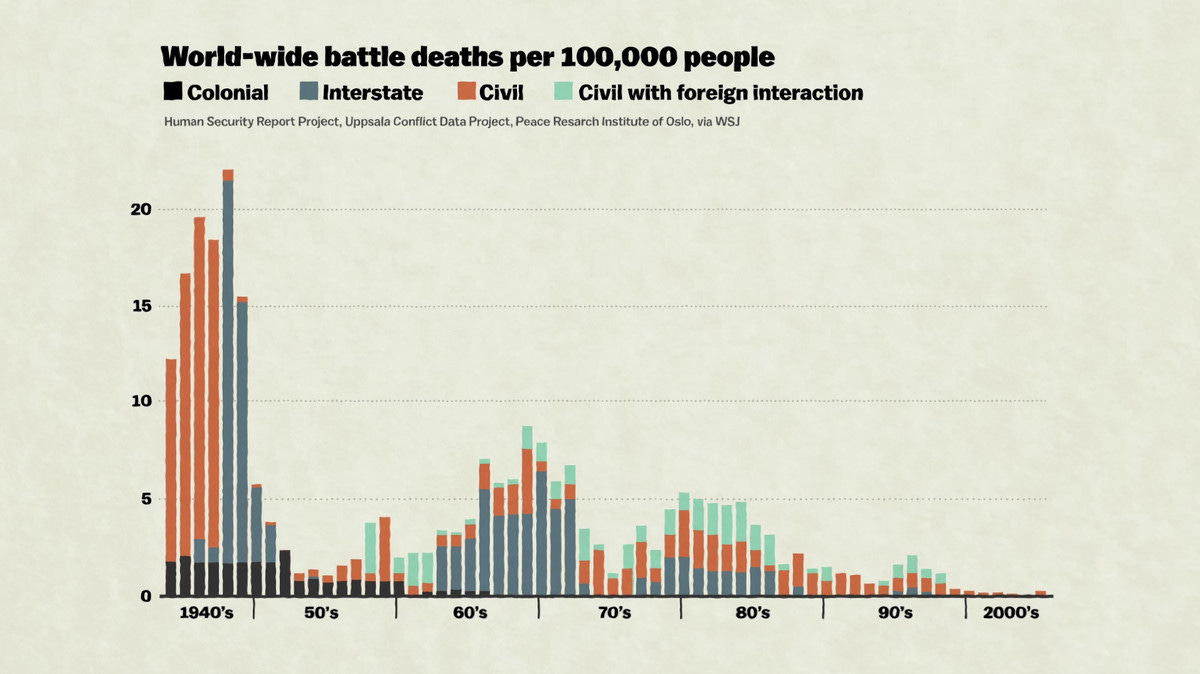#137 | What did Trump do right?
If liberty means anything at all it means the right to tell people what they do not want to hear.
— George Orwell, Animal Farm
The mass of the rich and the poor are differentiated by their incomes and nothing else, and the average millionaire is only the average dishwasher dressed in a new suit.
— George Orwell, Down and Out in Paris and London
Whenever discourse points only one way, we should look to the other. It’s hard to see that both sides are partially correct on the most divisive political questions. Our disagreements are made more divisive by the echo chambers in which we are each ignorantly siloed. Orwell, in his novel 1984, writes: "The best books . . . are those that tell you what you know already." — we consume what confirms our beliefs, and we disregard everything else.
So, what did Trump do right? Trump was the first president since Carter (39th POTUS, 1977 to 1981) not to send U.S. troops into a new conflict. And, since 1776, Trump is one of only a handful of presidents not to have taken America into a new war.
This is important because the worst thing we do as humans is go to war. The heavy costs are direct and indirect. Bush's invasion of Afghanistan demonstrates this: 243,000 were killed over two decades — not including indirect deaths from disease, access to food, water etc. — and the war cost $2.3 trillion (not including future veterans' care or future debt interest payments). Moreover, the Iraq war — 2003 to 2010 — killed 300,000 directly and cost $1.8 trillion.
But, if you were to ask the "moderate elite" who they'd prefer in office, Bush or Trump, most would pick the former. Both are Republicans, but the first committed the U.S. to two decades of war. The second increased defence spending from $682 to $800 billion (+17%) and didn't pull the trigger.
As highlighted by Stephen Pinker in Better Angels of Our Nature (which I haven't read), there is a longer-term global decline in violence and war. "The long peace", as he terms it, sees a drastic drop in battle deaths over the last century. In primitive societies, 15% of people died violently; today, 0.03% do. Violence is 1/500th of what it used to be.
Knowing this should make us even more alarmed when politicians take us into conflicts, given that violence is increasingly rare.
The U.S. is often at war. Internally, between the settlers' arrival in the "New World" up to 1900, the indigenous population collapsed from 10 million to 300,000. Internationally, since 1776, the U.S. has only spent ~17 years not at war!. Over this long period, there have been five declarations of war, and the list of wars in which the U.S. has fought stretches to 105 (four are ongoing). Therefore, Trump's unusually peaceful presidency must be credited. Some will say it was an accident of history, but what if it wasn’t?
Our independent thoughts, which lead to political preferences, are swallowed by the politics of our peers. If you read the BBC, you read one very narrow perspective on how the world works. Your Twitter feed is another. Social media is curated to keep us clicking. We only see moderate content with which we agree or divisive content that lures an angry response, and then ignore.
The absurdity of closing our minds to other perspectives is widely studied and quickly done. Ingroup–outgroup bias replaces rational thought with conformity. This societal fault line, derived from human nature, slows humanity's progress.
American psychologist Irving Janis (Yale University) pioneered the initial research on the groupthink theory (my bolding):
I use the term groupthink as a quick and easy way to refer to the mode of thinking that persons engage in when concurrence-seeking becomes so dominant in a cohesive ingroup that it tends to override realistic appraisal of alternative courses of action. … The main principle of groupthink, which I offer in the spirit of Parkinson's Law, is this: "The more amiability and esprit de corps there is among the members of a policy-making ingroup, the greater the danger that independent critical thinking will be replaced by groupthink, which is likely to result in irrational and dehumanizing actions directed against outgroups"
People rarely credit Trump’s presidency; the narrative is overwhelmingly critical. Honestly, I find myself pulled to write, "Oh, of course, we all know Trump was nuts", to appease a cold reaction.
Even (or especially) writing to you, my ingroup, I feel pressure to conform. These winds of ingroup conformity send us toward homogeneity and away from seeing the world as it is. So, when feeling those winds behind us, we should gybe and look back.
My week in books
Tallyrand: A biography by J.F. Bernard. Tallyrand had an extraordinary life, and I’m loving his biography. Review next week.
Live well,
Hector
P.S. The "♡ Like" button looks insignificant, but it indicates Vertigo’s worth to visitors. Please don't hesitate to show your support. Thank you!



Very interesting
Hope to have time to discuss this one xx